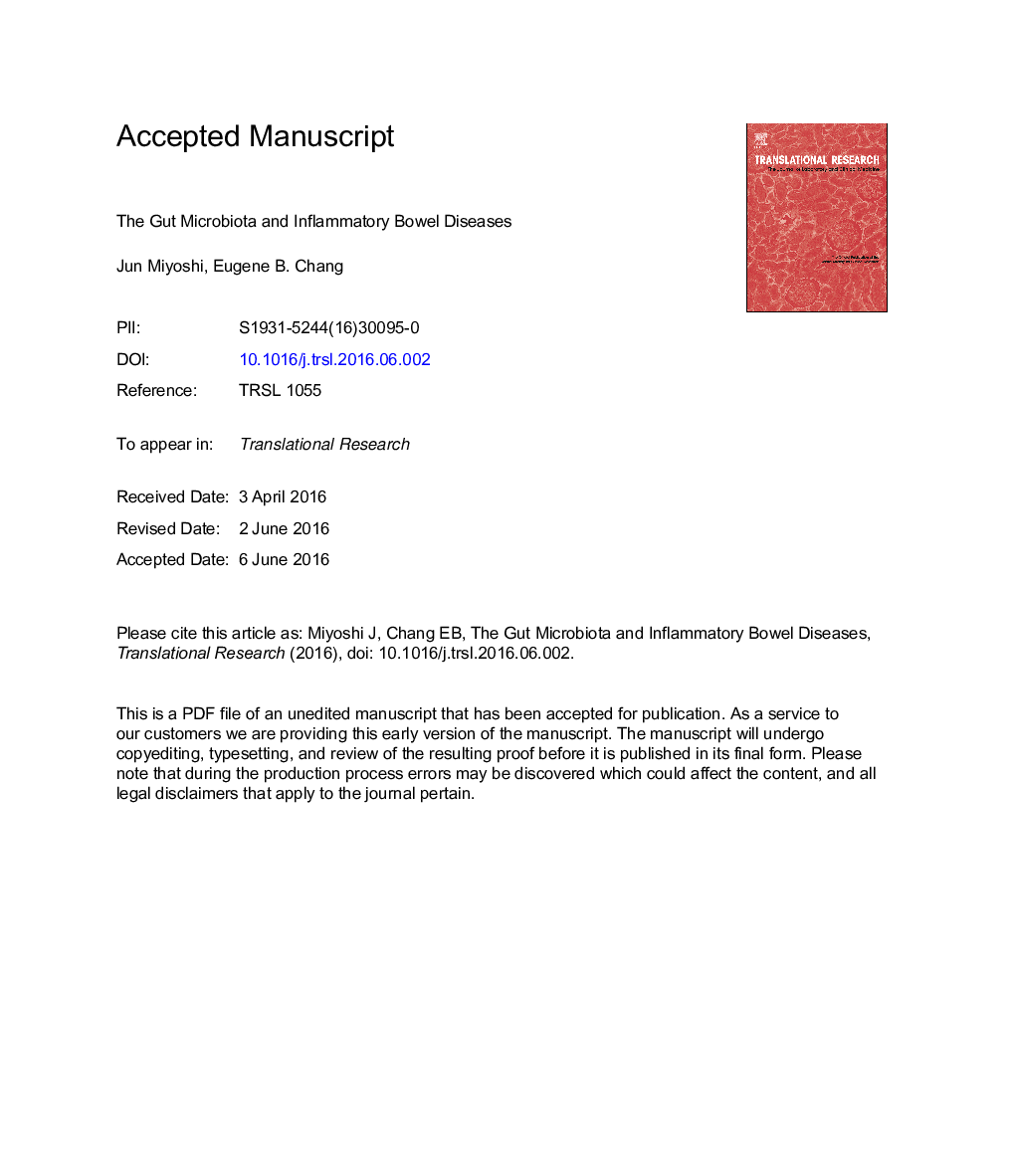| Article ID | Journal | Published Year | Pages | File Type |
|---|---|---|---|---|
| 5685069 | Translational Research | 2017 | 32 Pages |
Abstract
Inflammatory bowel diseases (IBDs) are chronic diseases of unclear etiology that affect over 1 million individuals in the United States and over 2.5 million people in Europe. However, they are also expanding globally, affecting populations in Asia, South America, and the Middle East as they become more industrialized. These diseases are believed to arise from the convergence of genetic, environmental, and microbial factors that trigger aberrant immune and tissue responses, resulting in intestinal inflammation. Advances in cultivation-independent investigations, experimental models, and bioinformatics approaches have improved our understanding of the role of gut microbiota in IBD. However, determining and understanding the functional consequences of gut dysbiosis and altered host-microbiota interactions in IBD remain a challenge due to the limits of current experimental models and difficulty in establishing causal links in human-based investigations. Continued development of new methodologies and improvements in clinical study design are needed to better understand the interplay of genetic, microbial, and immunological factors in IBD. This knowledge can then be applied clinically to improve therapeutic strategies and outcomes for IBD.
Keywords
PSAASCAFMTMDPmuramyl dipeptideanti-Saccharomyces cerevisiae antibodyVLPTregGPR43AIECSCFAIBDpolysaccharide ANADPHDSSShort-chain fatty acidsAdherent-invasive Escherichia coliimmunoglobulin AIgAinflammatory bowel diseasesCrohn's diseaseGastrointestinal tractGI tractVirus-like particleregulatory T celldextran sodium sulfateGenome-wide association studyGWASnicotinamide adenine dinucleotide phosphateSingle-nucleotide polymorphismfecal microbiota transplantationSNPUlcerative colitis
Related Topics
Health Sciences
Medicine and Dentistry
Medicine and Dentistry (General)
Authors
Jun Miyoshi, Eugene B. Chang,
